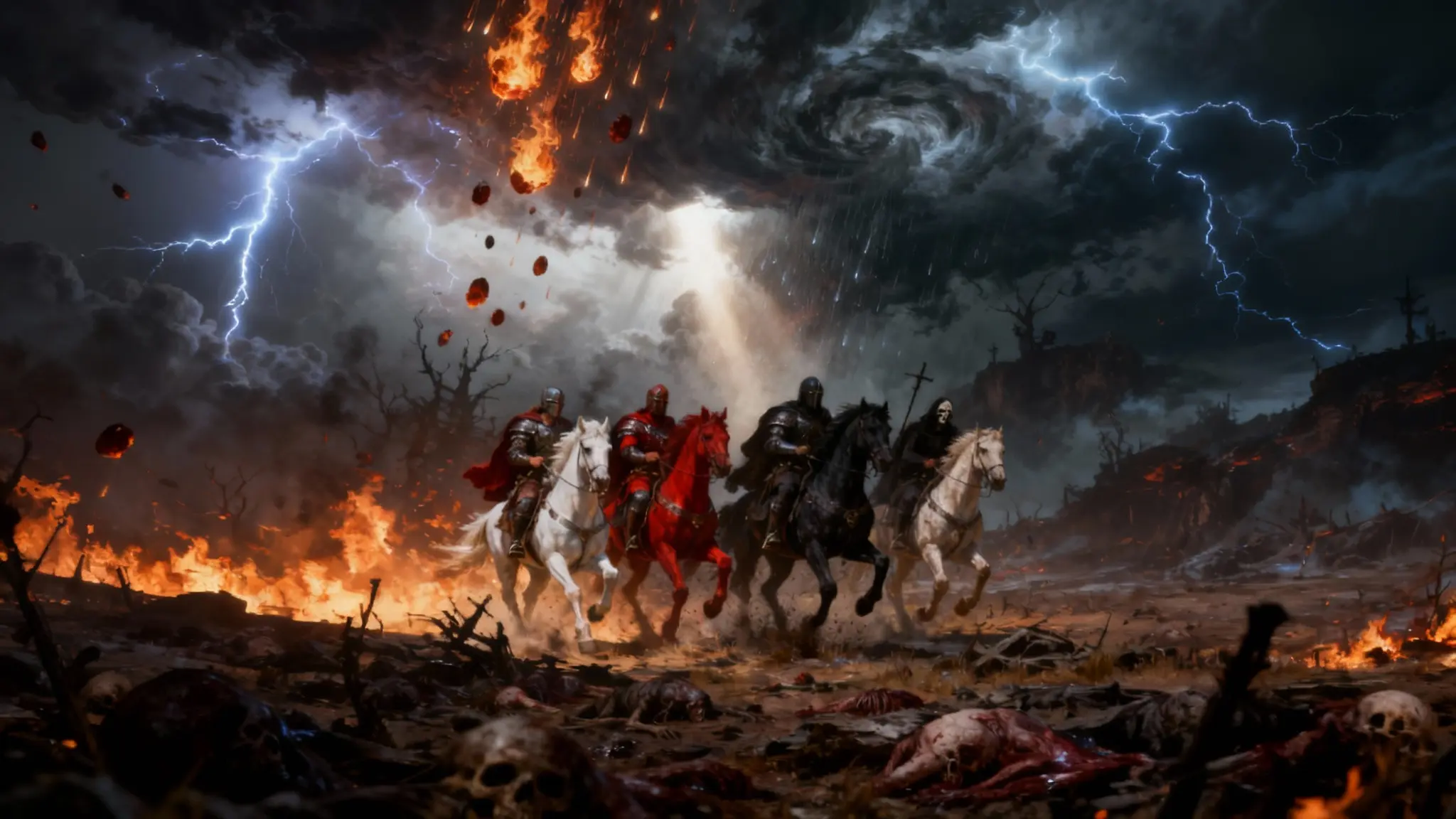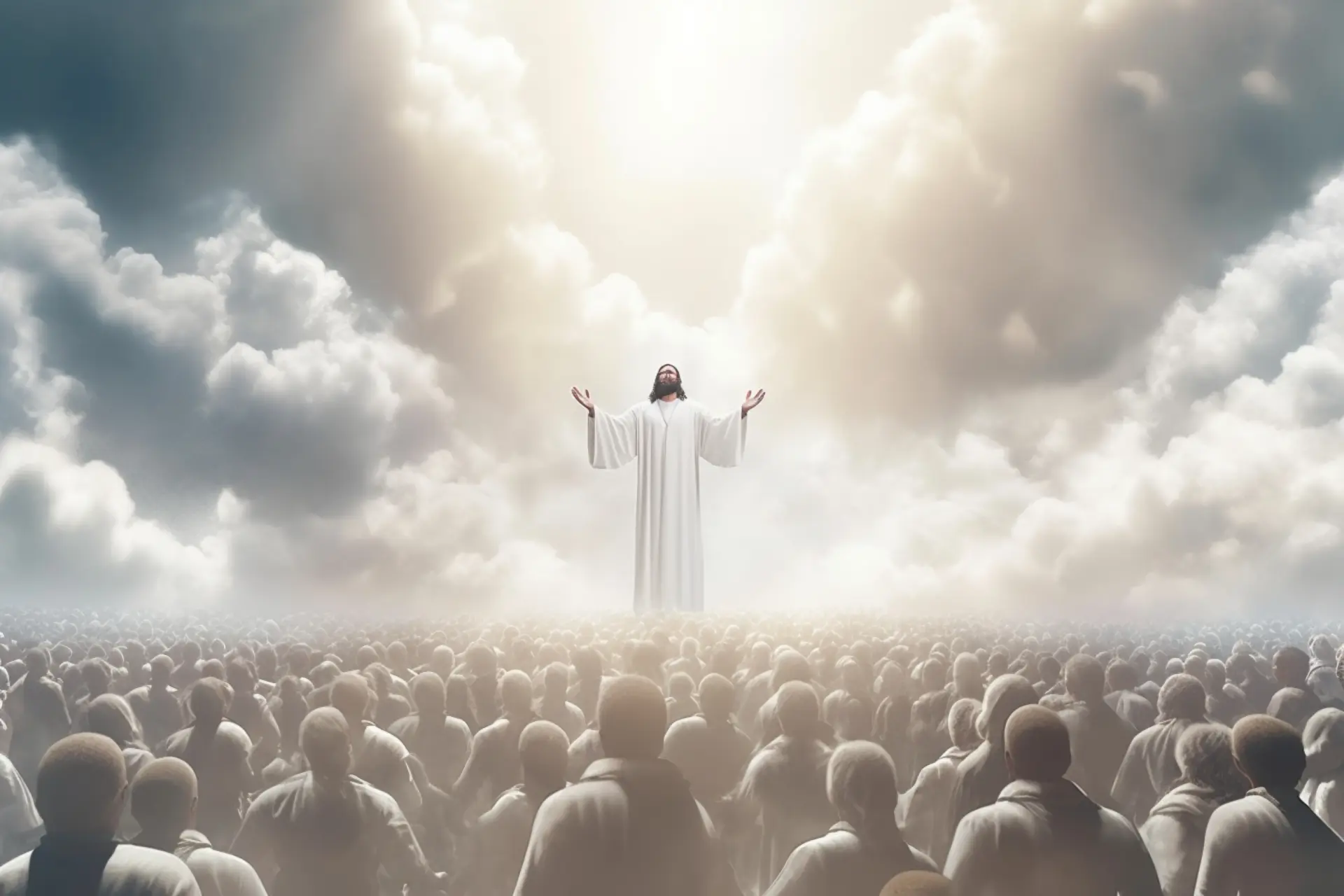A Biblical Case for the Pre-Tribulation Rapture
Will Christians go through the Tribulation? It’s a question that keeps coming up in Bible studies, church conversations, and discussions among believers. It’s not a new debate. Faithful, Bible-believing Christians have wrestled with this question for generations. Will the church endure the coming Tribulation, or will Christ remove His bride before the storm breaks? The answer shapes how we understand God’s character, His promises, and the hope we carry in our hearts.
Sincere Christians land on different sides of this debate. Some believe the church will face the Antichrist and survive the judgments through divine protection. Others, including teachers like Amir Tsarfati, argue persuasively that Scripture promises our removal before the hour of wrath begins. Since we hold that the Bible is without error, we must test every view against the text itself.
Let me be clear from the start: I believe the pre-Tribulation Rapture is the position best supported by Scripture. But to understand why, we need to first hear the other side fairly.
The Post-Tribulation Viewpoint
Those who believe Christians will go through the Tribulation point to Matthew 24:29–31, where Jesus says that after the tribulation of those days, He will send His angels to gather His elect. They see this as the Rapture happening at the Second Coming. They also note that Revelation clearly shows believers on earth during the Tribulation period, many of them martyred for their faith. If saints are present during those terrible days, they reason, then the church must still be here.
They remind us that suffering is normal for Christians. Jesus Himself said we would have tribulation in this world. The apostles taught that through many tribulations we must enter the kingdom of God. Why should we expect exemption from the final great trial when believers throughout history have faced persecution and death? God protected Israel in Egypt during the plagues without removing them. He sealed the 144,000 in Revelation to protect them through judgments, not from them.
Some also point to 2 Thessalonians 2, where Paul says the man of lawlessness must be revealed before our gathering to Christ. If we must see the Antichrist first, they argue, then we can’t be raptured before the Tribulation begins. They see one general resurrection, one general coming of Christ, and they believe that dividing these into multiple phases feels forced and unnecessary.
Finally, they note that no single verse states plainly, “The Rapture happens before the Tribulation.” They want explicit clarity, and they don’t find it in the pre-Trib position.
These are honest objections from brothers and sisters who love the Lord and honor Scripture. But when we examine the biblical text carefully, especially passages like Revelation 3:10 and 1 Thessalonians 1:10, a different picture emerges.
Promise of Deliverance
The first critical distinction is between tribulation in general and the specific wrath to come. Yes, believers are promised tribulation in this age. That’s human and satanic persecution, the normal cost of following Christ in a fallen world. But the Great Tribulation is something else entirely. It’s tied to the Day of the Lord and God’s direct judgment on a rebellious world.
Jeremiah 30:7 calls it “the time of Jacob’s trouble.” Notice the focus: Jacob, meaning Israel. Daniel’s 70th week, outlined in Daniel 9:24–27, is decreed “for your people and your holy city.” That’s Israel and Jerusalem, not the church. The final seven years complete Israel’s prophetic program, not the church’s. This matters because it tells us who the primary actors are in that drama.
Now consider Revelation 3:10, one of the clearest promises in Scripture regarding the church and the Tribulation. Jesus tells the church at Philadelphia, “Because you have kept my word about patient endurance, I also will keep you from the hour of trial that is coming on the whole world, to try those who dwell on the earth.”
Two things stand out. First, the phrase “keep you from” uses the Greek tereo ek. This isn’t merely protection inside a trial; it’s being kept out of a time period. Jesus doesn’t promise to preserve us through the hour; He promises to keep us from the hour itself. The object of the promise is temporal, not just circumstantial. To be kept from the hour means exemption from that period, not survival within it.
The Scope of the Trial
Second, this hour of trial is global in scope and targets “those who dwell on the earth.” In Revelation, that phrase is technical. It refers to earth-dwellers in rebellion against God, not the faithful. The trial is designed for them, not for the bride of Christ.
Then there’s 1 Thessalonians 1:10, where Paul describes believers as those who “wait for his Son from heaven, whom he raised from the dead, Jesus who delivers us from the wrath to come.” The Greek word for wrath here is orge, the same term Paul uses in 1 Thessalonians 5:9 when he writes, “God has not destined us for wrath, but to obtain salvation through our Lord Jesus Christ.”
We are not destined for wrath. We are delivered from the wrath to come.
This is a promise of deliverance, not endurance. We are not destined for wrath. We are delivered from the wrath to come. When does that wrath begin? In Revelation 6:16–17, even early in the seal judgments, people cry out to the mountains, “Fall on us and hide us from the face of him who is seated on the throne, and from the wrath of the Lamb, for the great day of their wrath has come.”
The wrath doesn’t start only at the very end with the bowl judgments. It characterizes the entire period. If we are delivered from the coming wrath, and that wrath saturates the 70th week from its opening movements, then our deliverance must occur before it begins.
The Structure of Revelation Supports Early Deliverance
The structure of Revelation itself supports this. The church is prominent in chapters 2 and 3. Then, beginning in chapter 4, John is called up to heaven and sees a worshiping company described as kings and priests wearing crowns. The church is not mentioned on earth again until the wedding supper and the return in chapter 19. Meanwhile, Israel is center stage. The 144,000 are sealed from the tribes of Israel. The temple and Jerusalem are in view. The focus has shifted back to Daniel’s people and Daniel’s holy city.
This shift is not accidental. It reflects the prophetic program. The church age is a parenthesis between the 69th and 70th weeks of Daniel. It is the period of Grace. By its very definition this period sees the end of grace at the beginning of the 70th week as His judgements on the world are poured forth. This is when the church is removed; This is when God resumes His dealings with Israel.
Imminence as a New Testament Teaching
The New Testament also teaches imminence. We are told to wait for Christ, to look for His appearing, to be ready at any moment; For He is coming soon. Paul writes in Philippians 3:20 that our citizenship is in heaven, and from there we await a Savior. Titus 2:13 calls it “our blessed hope.” James 5:8–9 says the coming of the Lord is at hand, the Judge is standing at the door.
If the church must first see the Antichrist revealed, the abomination of desolation set up, and a cascade of trumpet and bowl judgments, then the blessed hope is not imminent in any ordinary sense. We would be watching the judgements of God being poured out, not watching for the coming of the Savior. But the consistent New Testament posture is one of expectancy. He could come at any time.
The Role of the Restrainer
Consider also 2 Thessalonians 2:6–7, where Paul speaks of a restrainer. He says the mystery of lawlessness is already at work, but someone is restraining it. When that restrainer is taken out of the way, then the lawless one will be revealed. The best explanation is that the restrainer is the Holy Spirit working uniquely through the church. The Rapture removes that restraining influence in a real sense. We know that God is omnipresent, so the Holy Spirit remains and continues to work in salvation during the Tribulation, but His restraining work on behalf of the church ceases. This sequence places our gathering to Christ before the full unveiling of the man of lawlessness, not after.
Other Patterns of Removal Before Wrath
Scripture also gives us patterns. Lot was removed before fire fell on Sodom. Jesus Himself draws the parallel in Luke 17:28–30. Peter reinforces it in 2 Peter 2:6–9, noting that God knows how to rescue the godly from trials and to keep the unrighteous under punishment. Enoch was taken before the flood. Noah was sheltered in the ark, lifted above the judgment. These are types, and they point to removal or separation before wrath falls.
We are a bride awaiting her Bridegroom, not a people bracing for divine wrath.
Isaiah 26:19–21 pictures resurrection, then God’s people hidden “in your chambers” for a little while until indignation passes. That reads like protection in God’s presence while wrath runs its course on earth. And in John 14:1–3, Jesus promises to take us to the Father’s house, not to come down and stay where we are. That fits a catching up to heaven prior to the earthly judgments, not a meeting in the air followed by an immediate return.
What about the objections? Let’s address them honestly.
Matthew 24:29–31 does say that after the tribulation the Son of Man will send His angels to gather His elect. But context matters. Matthew 24 is addressed to a Jewish audience in a Jewish context. Jesus speaks of the temple, Judea, the Sabbath, and the abomination of desolation standing in the holy place. This is Daniel’s 70th week from Israel’s perspective. The gathering in verse 31 follows the visible appearing of the Son of Man with power and great glory. Zechariah 14 tells us that the Messiah will stand on the Mount of Olives, and it will be split in two from the east to the west. That’s the Second Coming, and the gathering is the regathering of elect in Israel for the millennial kingdom. It is not the church’s translation to the Father’s house.
Yes, Revelation shows believers on earth during the Tribulation. Many will come to faith after the Rapture. In fact Revelation 7:9–14 indicates that the period of the Tribulation will see the greatest harvest of new believers than any time before it. During this time the 144,000 are sealed and sent out to evangelize the world. A great multitude will be saved. These are Tribulation saints, not the church. The church is the body of Christ, formed at Pentecost and completed at the Rapture. Tribulation saints are saved during the 70th week under a different dispensational arrangement. Both are redeemed, but they are distinct groups in God’s program.
God can protect His people through judgments. He did it in Egypt. He did it in Babylon. He will do it for some in Revelation. But Revelation 3:10 promises something different: protection from the hour itself. Promise and purpose both matter. The purpose of the 70th week is to complete Israel’s program and to judge the rebellious world. The church’s program concludes with translation, not tribulation. With rapture and not judgement.
As for 2 Thessalonians 2, Paul is correcting a false teaching that the Day of the Lord had already come. He reminds them that the restrainer must be removed and the man of lawlessness revealed before that Day fully arrives. This supports a pre-Day deliverance of the church, not a placement inside the Day. The sequence is: restrainer removed, lawless one revealed, Day of the Lord unfolds. Our gathering to Christ precedes the revelation of the Antichrist.
Affirming a Pre-Tribulation Rapture View
Amir Tsarfati is a Jewish believer who preaches about Israel, the End Times and God’s plan for Israel. He has pressed these very arguments with clarity and conviction (1, 2 & 3). He emphasizes the distinction between persecution and God’s wrath. He highlights the focus on Israel in the 70th week. He points to the plain promises of Revelation 3:10 and 1 Thessalonians 1:10. He reminds us that the church is not appointed to wrath and that our hope is not survival through judgment but deliverance from it.
How can we be sure God will rapture His church before the hour of wrath? We can be sure because of God’s character and His promises. He does what He says. He has promised to deliver His church from the coming wrath. He has promised to keep us from the hour of testing that comes on the whole world. These are not vague assurances; they are specific commitments tied to specific events.
How We can be Sure of a Pre-Tribulation Rapture
We can be sure because of God’s prophetic program. Daniel 9 locates a final seven years for Israel and Jerusalem that precedes the coming of the Messiah to reign in power and might. This is not a prophecy for the church. The church’s hope is Christ’s appearing to take us to the Father’s house. Paul says clearly that He will meet us in the air at that time – he will not be coming to set his feet on the Mount of Olives, that come later at His second coming.
That’s the blessed hope, the comfort Paul offers in 1 Thessalonians 4:18 when he says, “Therefore encourage one another with these words.” If the church were destined to endure the Tribulation, Paul’s words would ring hollow. Instead, they offer genuine comfort because they promise reunion with Christ and exemption from wrath.
We can be sure because the consistent New Testament posture is one of imminence, comfort, and watchfulness. We are a bride awaiting her Bridegroom, not a people bracing for divine wrath. We are told to encourage one another, to build one another up, to look for that blessed hope. That tone fits one of faithful grace and mercy, of removal before judgment, not endurance through it.
The pre-Tribulation Rapture is not wishful thinking or escapism. It’s the natural reading of Scripture when we honor the distinctions God has made between Israel and the church, between tribulation and wrath, between the Day of the Lord and the age of grace. It’s the position that best fits the promises of Revelation 3:10 and 1 Thessalonians 1:10. It’s the view that preserves the imminence of Christ’s return and the comfort of the blessed hope.
Will Christians go through the Tribulation? No. Not the church. Christ will come for His bride before the hour of trial begins. That’s the promise. That’s the hope. And that’s what Scripture teaches when we examine it carefully and let it speak for itself.
Citations:
1. Amir Tsarfati, The Day Approaching: An Israeli’s Message of Warning and Hope for the Last Days (Eugene, OR: Harvest House, 2020), esp. chs. 7–9.
2. Amir Tsarfati and Barry Stagner, Bible Prophecy: The Essentials (Eugene, OR: Harvest House, 2021), pp. 77–112.
3. Amir Tsarfati, “Amir Tsarfati: Removed Before Wrath” Behold Israel, video message (https://www.youtube.com/watch?v=DkblZPi9_7Y)




